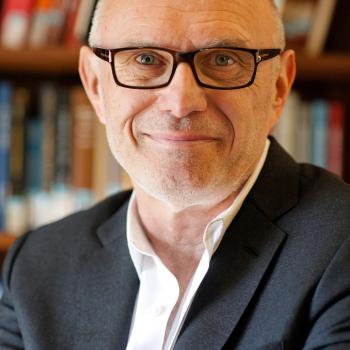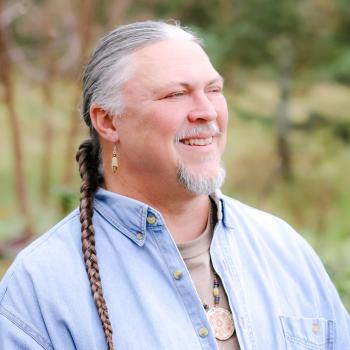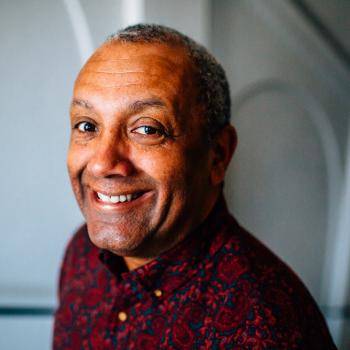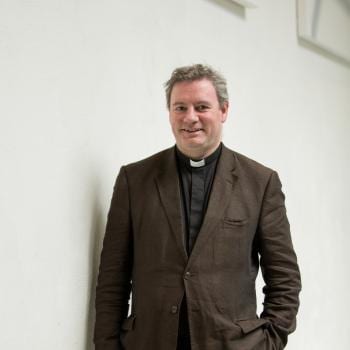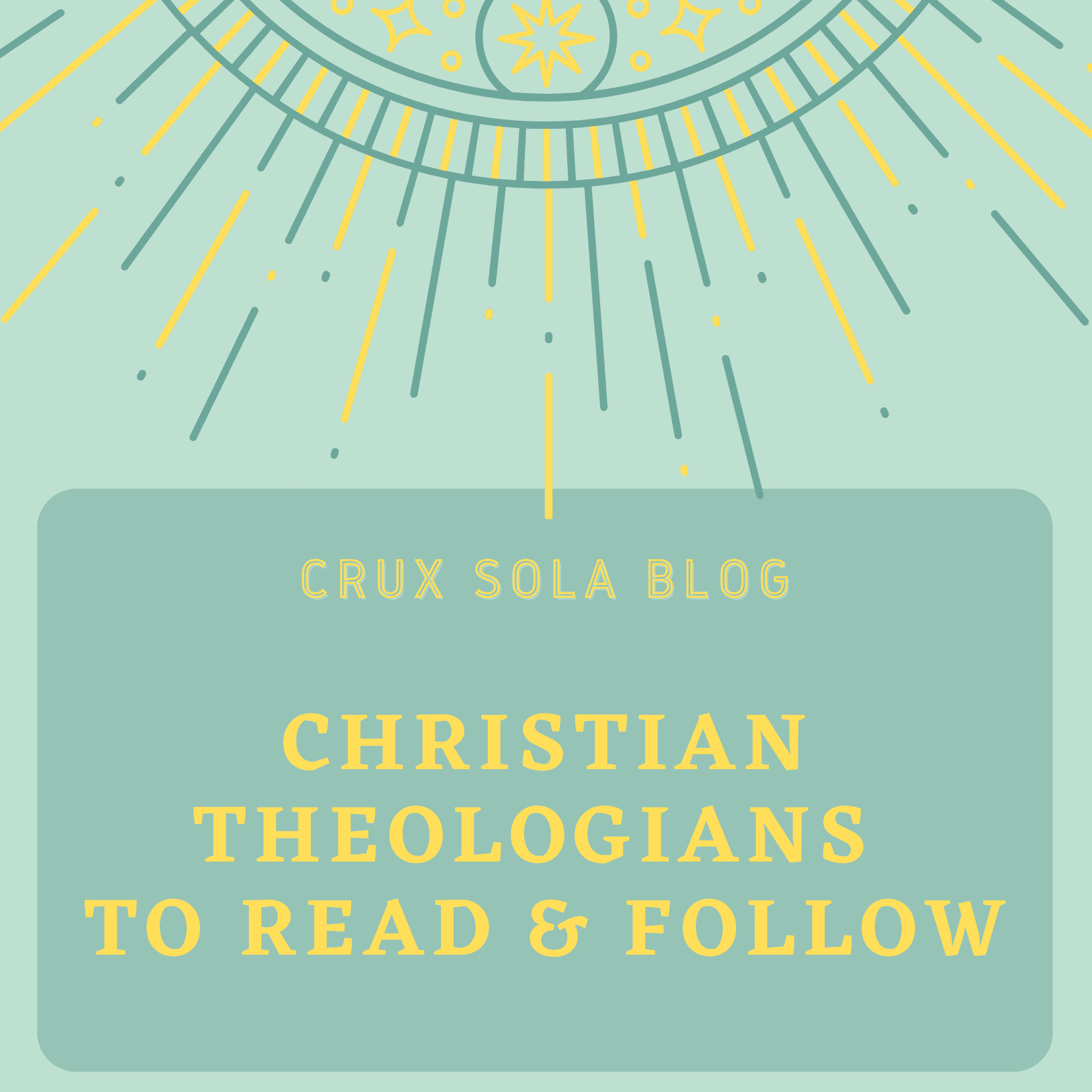
Julie Canlis, adjunct, Whitworth University Graduate Studies in Theology
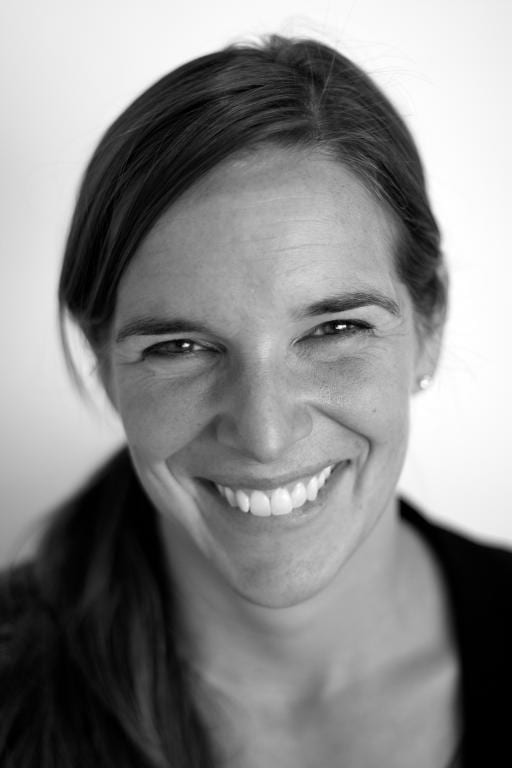
Why do you love teaching and researching about Christian theology?
Because I love the church! My “normal” job is with our local church, where I have the privilege of leading worship and being the “liturgical director” (which basically translates into explaining the liturgy and helping our congregation enter into its breadth and depth). I find that the best litmus test for my theological hunches is whether or not they somehow are able to bring about greater freedom for people in our church. Not that everything needs an immediate application – but it roots me to have a real flesh-and-blood group of people who hover about my consciousness as I read and write, even if it is for a completely different (probably academic) context.
Another reason I love theology is that I struggle with my “daily bible reading,” but theological research/writing is a different avenue through which I receive life and transformation. Just yesterday I was reading Irenaeus and had to stop everything and re-read, “Offer him your heart, pliant and unresisting. Preserve the form in which the Craftsman fashioned you. Keep within you the Water which comes from Him; without it, you harden and lose the imprint of His fingers …” That’s rich and if I am attentive, is a space where I can meet with God – even under a writing deadline!
What is one “big idea” in your scholarship?
I think it is the humanity of Jesus, and how Jesus’ humanity sanctifies our humanity. So much of our lives – Christian or otherwise – is a flight from our humanness, brokenness, and mortality. Instead, we are offered a path to our transformation – which is a “descent” into our bodies, our frailty, our limitations – because it is there that we find Jesus. If we are human, we have all the “tools” we need for our spiritual journey. This is why I love icons of the transfiguration – we all long to be transfigured / transformed – this is part of the longing of our hearts. But it will not come through denying our humanity, but through our humanity – and Jesus’ humanity which was transfigured for us. As I follow in Jesus’ path (with four teenagers, a church to pastor, my own marriage counseling, etc), I find that I am more and more participating in Jesus’ suffering humanity – and this, in turn, gives sense to the suffering around me and in me.
Who is one of your academic heroes and why do you admire them?
This is an unfair question! There are too many! But I admire the Torrances (particularly T. F. who helped translate Reformed theology to a new generation), Von Balthasar (who is basically a theological hedonist – infectiously delighting in theologians of all shapes and sizes), and N. T. Wright (am I allowed a biblical scholar?) I realize that the common denominator between all these men is their theological breadth. As an Enneagram 7 myself, I love it when academics don’t just dive deep, but also go wide …
What books were formative for you when you were a student? Why were they so important and shaping?
Parker Palmer’s To Know as We Are Known helped transition me from a fairly fundamentalist view of truth (I knew the truth – now I know better truth), to truth as a relational category. I am still reeling from this. And – no surprise – being forced to read Calvin’s Institutes in seminary was also life-changing, not for its neat-and-tidy categories but for its relational breadth and depth. Through Calvin, I began to learn the “knack” for seeing all of reality in trinitarian categories, and beginning to reorient all of my theology around the fatherhood of God. These were big steps toward shaping my theological thinking and praxis (and hopefully, my parenting & marriage as well).
Read Canlis’s Work
Because I started my PhD with a newborn, and finished it in the hospital delivering my third-born, I have always had to walk out my calling as a theologian first of all in the front lines of my family. This has meant that deadlines have to work within the “boundaries” of my four children, my marriage, and our church where my husband is a full-time priest. (It also means saying “no” to many things). But these boundaries have been my salvation, in many ways, and they have come to fall “in pleasant places” (Psalm 16). My favorite book is my microbook A Theology of the Ordinary because I knew that my published research Calvin’s Ladder wouldn’t be for everyone. I think the future of theology should be in microbooks! 🙂
Learn more about this book HERE.
Follow Canlis Online
I’m not on social media, but my husband and I collaborated on a project that I now direct which has resources for pastors, and it is there that you can find our short film (30 min) or books.
livegodspeed.org
If you ran into me at a conference and didn’t want to talk theology, what would you want to talk about?
Tips for sourdough bread, raising sheep (our current breed: katahdin), poetry favorites, how to get children to practice musical instruments, good Sunday school resources, bee-keeping, and movie recommendations!
What is a research/writing project you are working on right now that you are excited about?
I’m working on a book about Lent – and how participation in the church calendar is a tangible way to participate in Jesus. I’m also thinking a lot about obedience, and how to walk in a spirituality of obedience that takes its shape from the father-son relationship (rather than more rigid behavioral forms) – an “ontology of obedience” you might call it. (This is probably a reflection of the current parenting stage I’m in!)







